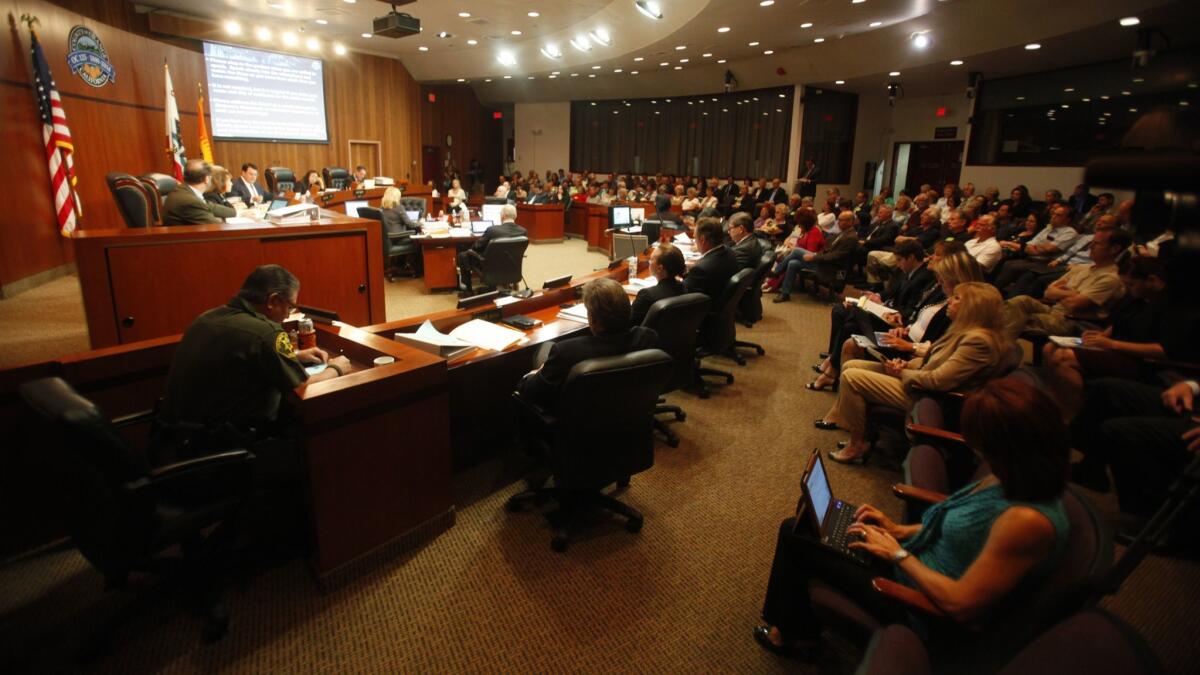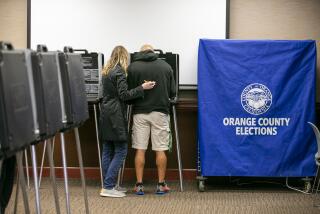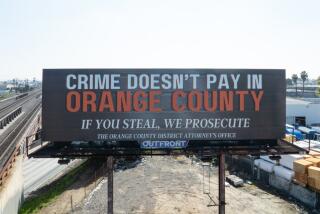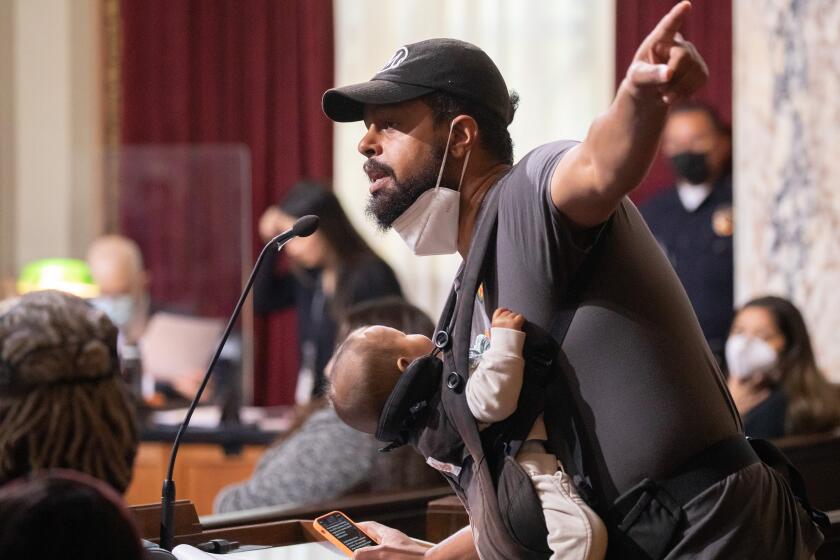ACLU sues Orange County for silencing public comments, calling board a ‘monarchy’

A homelessness task force is accusing the Orange County Board of Supervisors of restricting free speech at its meetings and violating California public records laws.
The American Civil Liberties Union Foundation of Southern California, on behalf of the People’s Homeless Task Force, filed a lawsuit Tuesday in Santa Ana Superior Court alleging that county supervisors limit access to public documents, destroy public documents and give officials preferential treatment over members of the public, in violation of residents’ 1st Amendment rights and the Brown Act.
“Participatory democracy, in which constituents are free to comment on the actions and views of elected officials, is one of the cornerstones of our nation,” the ACLU said in a statement Tuesday. “But not at the Orange County Board of Supervisors, where meetings are held in a manner more befitting a monarchy.”
Brendan Hamme, a staff attorney with the ACLU of Southern California, said the supervisors are “among the least transparent and least accountable government bodies in the state of California, if not the country.”
Molly Nichelson, the county public information manager, said officials had received the lawsuit.
“While we cannot comment on it in its entirety at this time, we do believe that our rules regarding public comment and public records comport with state and federal law,” Nichelson said in a statement.
According to the lawsuit, the board has denied the Peoples’ Homeless Task Force access to documents and video footage of meetings and destroyed documents that should have been kept for a minimum of two years under California law.
The ACLU also alleges that supervisors are more lenient when giving county officials or leaders of certain groups time to speak at meetings while consistently silencing members of the People’s Homeless Task Force, which advocates for homeless individuals and has criticized the board’s actions on homelessness.
In one instance, elected officials were allowed to talk for more than the two-minute limit they were given, which was already more time than what was allowed for other speakers, according to the lawsuit.
“When one speaker who was not an elected official exceeded her time limit, the Chair cut her off and scolded, ‘You are not more important than other speakers. I know you think you are,’” the lawsuit states.
In another instance, a speaker representing the Dana Point Harbor revitalization project and a speaker discussing workers’ compensation for the Sheriff’s Department exceeded their time limit without being asked to stop. At the same meeting, a member of the homeless task force, Lou Noble, was held strictly to his speaking time limit, according to the lawsuit.
The lawsuit also alleges that, in an attempt to shield supervisors from criticism, members of the public are prohibited from addressing them directly without permission, though some are also given leniency on that front.
That’s in addition to other restrictive rules practiced by the board, including moving the public comment section of the meeting to the end instead of the beginning of meetings and not allowing audience members to applaud during meetings, the lawsuit said.
The ACLU said these practices “actively attempted to silence the people, stifle debate and shield its members from criticism by erecting barriers to the people’s participation in board meetings.”
“It’s well past the time for the members of the board to realize that residents are constituents to be served, not obstacles to be avoided,” Hamme said.
The lawsuit asks the court to order the supervisors to be more transparent and change rules that restrict the public’s participation, as well as cover any attorney fees incurred by the plaintiffs.
alejandra.reyesvelarde@latimes.com
Twitter: @r_valejandra
More to Read
Start your day right
Sign up for Essential California for news, features and recommendations from the L.A. Times and beyond in your inbox six days a week.
You may occasionally receive promotional content from the Los Angeles Times.







